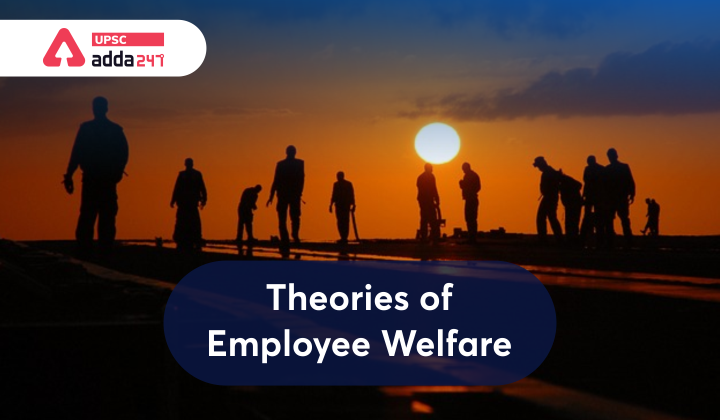Below are some of the most important theories of Employee Welfare. These theories are very important for the EPFO EO exams.
- Policing Theory:
- This view states that the owners of the factory and other industrial workplaces are selfish and self-centred and always tries to achieve his own ends even at the cost of labourers.
- Labourers can be unfairly mandated to work for long hours, they could be paid low wages, by keeping the workplaces in an unhygienic condition, and by ignoring the provision of elementary human amenities, such as drinking water, latrines, rest rooms and canteens.
- A labour welfare needs to enact legislation under which managements are mandated to provide basic facilities to the workers.
- Evidently, the state assumes the role of a policeman, and compels the managers of industrial establishments to provide welfare facilities, and punish them in case of non-compliance.
- Religion Theory:
- It has two connotations: the investment and atonement aspects.
- The investment aspect maintains that the fruits of today’s deeds will be reaped tomorrow.
- Any action—good or bad—is therefore treated as an investment. Inspired by this belief, employers of the establishment plan and organise canteens and creches.
- Atonement aspect, on the other hand, implies that the present disabilities of a person are the result of the sins committed previously.
- The person should therefore to do good deeds now to atone or compensate for his/her sins.
- Philanthropic Theory Philanthropy means affection for mankind.
- It refers to employers providing for good working conditions, creches and canteens facilities to remove the disabilities of the workers.
- Student hostels, drinking water facilities, the rehabilitation of crippled persons, donations to religious and educational institutions, and so forth are examples of philanthropic deeds.
- Paternalistic Theory It is also called the trusteeship theory of labour welfare.
- The industrialist or the employer holds the total industrial estate, properties and the profits accruing from them, in trust.
- She holds it not only for her use, but also for the benefit of her workers.
- The workers are like minors, and the employers should provide for their well-being out of funds in their control.
- The trusteeship is not legal but puts a moral obligation on the owner.
- Placating Theory It assumes that appeasement pays when the workers are organised and are militant.
- Peace can be bought by welfare measures.
- As crying children are pacified by sweets, workers should be pleased by welfare works.
- Public Relations Theory It maintains that welfare activities are provided to create a good impression on the minds of the workers and ultimately the public.
- Clean and safe working conditions, a functional canteen, creche, make a good impression on the workers, visitors and the public.
- Some employers even take their visitors round the plant to show how well they are working for the welfare activities of the employees.
- Functional Theory Also known as the efficiency theory of labour welfare, the functional theory implies that welfare facilities are provided to make the workers more efficient.
- If workers are fed properly, clothed adequately and treated kindly, and if the conditions of their work are cooperative, they will work efficiently.
- Welfare work is a means of securing, preserving and increasing the efficiency of labour.
- Social Theory The social theory implies that a factory is morally bound to improve the conditions of the society in addition to improving the condition of its employees.
- Labour welfare is gradually becoming social welfare exercise.




 TSPSC Group 1 Question Paper 2024, Downl...
TSPSC Group 1 Question Paper 2024, Downl...
 TSPSC Group 1 Answer key 2024 Out, Downl...
TSPSC Group 1 Answer key 2024 Out, Downl...
 UPSC Prelims 2024 Question Paper, Downlo...
UPSC Prelims 2024 Question Paper, Downlo...





